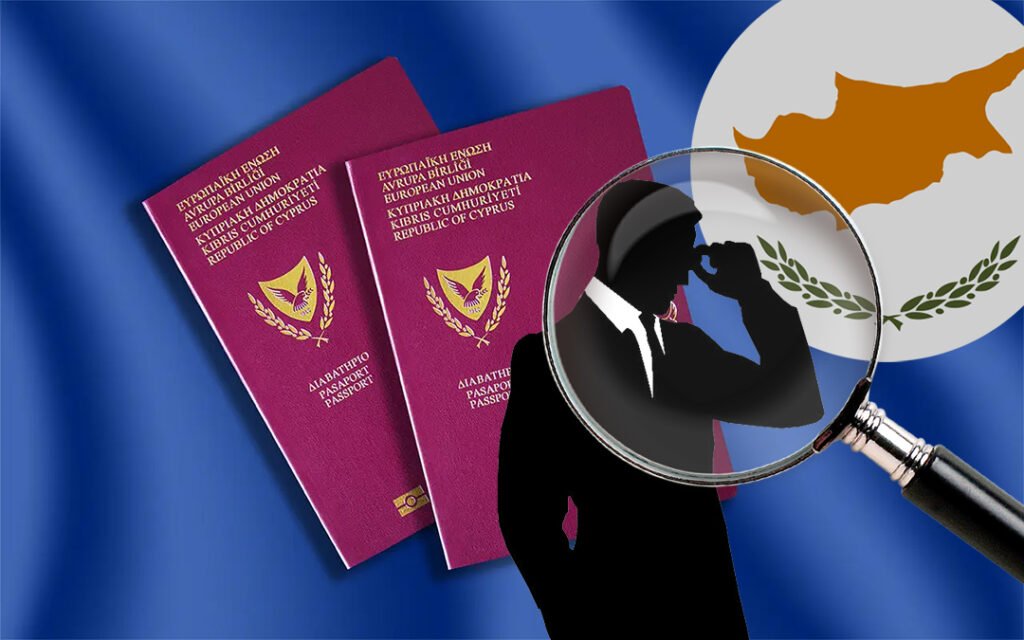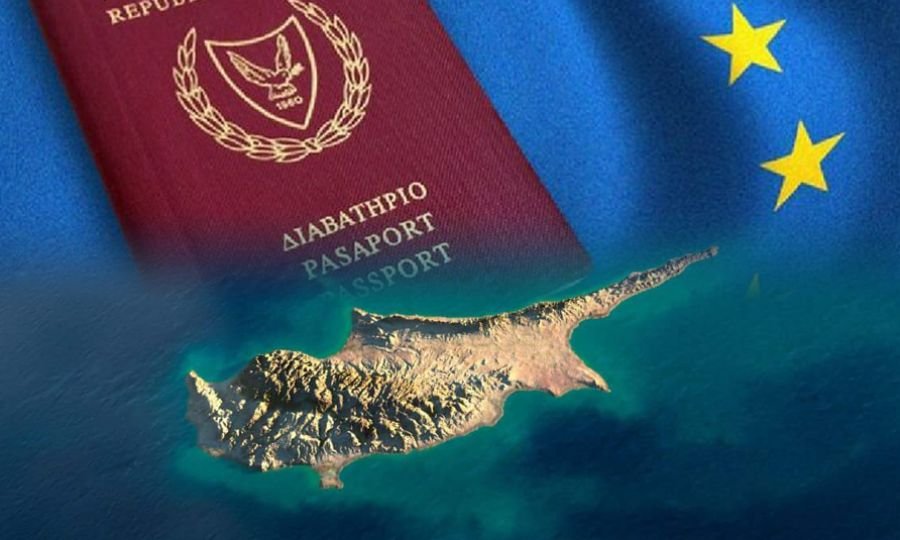It is no secret that numerous countries worldwide offer citizenship or at least a pathway to citizenship in exchange for financial contributions positioned as investments in the economic development of the respective state. Despite the substantial sums involved—often reaching millions—there is no shortage of individuals seeking to obtain the coveted so-called “golden passport.” However, it is unlikely that violations of these procedures are more prevalent elsewhere than in Cyprus, where such practices have persisted for nearly two decades.

In Cyprus, the “Citizenship by Investment” program (Cyprus Investment Program, CIP) was launched in 2007 to grant Cypriot citizenship to wealthy foreign nationals. Initially (2007–2012), the minimum investment threshold was €25 million; however, in 2013–2020, this amount was significantly reduced to “only” €2 million.
During this period, over 7,000 individuals, including investors’ family members, acquired Cypriot passports, while the program generated up to €9 billion in revenue for the Cypriot budget, even amid financial crises. Simultaneously, the program became a vehicle for numerous corrupt schemes.
Wherever substantial amounts of money are involved—particularly public funds—high-ranking individuals, including state officials, inevitably emerge to assume control over financial flows and to offer “facilitation services” to those seeking to acquire citizenship.
Scandals soon followed. The leak of government documents, the so-called “Cyprus Papers,” and an Al Jazeera investigation exposed the scale of corruption and the involvement of senior officials. Notably, Demetris Syllouris (Speaker of Parliament), Christakis Giovanis, lawyer Andreas Pittadjis, and the former CEO of Giovanis Group were implicated. According to the documents, Syllouris offered assistance to a “Chinese businessman with a criminal past,” underscoring the adage that “money has no smell.” As a result, they resigned and faced trial in September 2022. Another group of ten individuals, including former Minister of Transport Marios Demetriades, faced criminal proceedings on 59 counts of aiding and abetting and fraud.

The scale of abuses was indeed striking. An independent commission established that as of 2020, over 50% of the passports issued—approximately 3,400 out of 6,779—were granted illegally. The schemes often bypassed significant investment requirements, particularly in real estate, where properties were frequently annulled after formal purchase. The same properties became subject to “social VAT” at a rate of 5% instead of the standard 19%, resulting in an estimated loss of at least €204 million to the Cypriot budget. Ultimately, under pressure from Al Jazeera and the European Commission, the Cyprus Investment Program (CIP) was terminated in November 2020.
Following the closure of CIP, the “golden visa” program was introduced. An investment starting from €300,000 allowed individuals to obtain Cypriot citizenship and, consequently, European Union citizenship, albeit only after five years of residence in Cyprus. Prospective applicants were quick to invest and seek this status; however, an audit conducted this year revealed that out of 28 investors examined, 24 had not resided in Cyprus for the required five years. It appears that the old schemes have persisted.
Separately, it is important to highlight the “Russian footprint” in Cyprus. This issue is significant given that the Russian community is among the largest on the island, having grown further following Russia’s armed aggression against Ukraine. The presence of a significant number of Russians has repeatedly caused social tensions, including with Ukrainian nationals. It is also known that Russian businessmen and officials have systematically used Cypriot financial structures for semi-legal or outright illegal transactions.
The “Cyprus Confidential” investigation revealed that 67 of the 105 Russian billionaires listed by Forbes had utilized Cypriot structures to conceal assets. Among the “facilitators” was the international firm PwC, which assisted oligarch Alexey Mordashov in managing $1.4 billion. It is reasonable to assume that this represents only a fraction of the funds “generated” in Cyprus by Russian nationals and others. For instance, U.S. sanctions were imposed on Pakistani and Afghan officials holding Cypriot passports, including former Speaker of the Afghan Parliament Mir Rahman Rahmani.
Even this incomplete list of examples demonstrates that the Cypriot “golden passport” program was never merely a business venture for generating revenue but became a driver of a corrupt system, enabling criminals and autocrats to infiltrate the heart of the European Union. It indeed confirms the saying that “the road to hell is paved with good intentions.”
What, then, have been the consequences for Cyprus after nearly two decades of implementing this program in its various forms? The following is a non-exhaustive list:
- The program’s lack of transparency and systematic checks has resulted in billions in lost public funds and eroded trust in the Cypriot state.
- The indiscriminate issuance of “golden passports” has facilitated the legalization of criminals and corrupt individuals, as well as the laundering of criminal and semi-criminal funds.
- For the EU itself, this has also become a challenge, creating a precedent that undermines trust among member states and devalues the significance of European citizenship.
It is therefore evident that the European Union requires not only reactive measures but a systematic policy under which the complete prohibition of citizenship sales should become the norm for all member states. Investments should be transparent, regulated, and should not automatically grant the right to citizenship—a document that symbolizes not purchasing power but the conscious acceptance of values, obligations, and loyalty to the community.
Previously issued passports, particularly those acquired by criminals, oligarchs, or sanctioned individuals, must undergo thorough review. It is essential to introduce a unified EU-level standard for verification, including checks on criminal records, financial integrity, and mandatory physical presence in the country.
A key element of oversight should be the active involvement of civil society—journalists, investigative reporters, and auditing structures capable of identifying violations before they escalate into systemic threats. Only through the combination of political will and independent public oversight can the practice of treating European citizenship as a commodity for sale be brought to an end.
